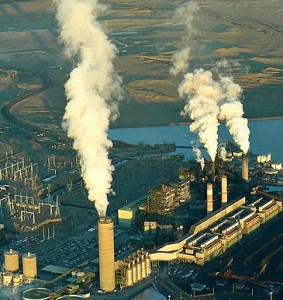Energy
The Renaissance of Energy Law
An esoteric field of law has become exciting and important.
Energy law used to be an obscure niche subject. It was devoted to subjects like oil and gas leases, the proper inflation adjustments in utility rates, and depreciation schedules for power plants. Utilities were famously set in their ways, using nineteenth century technologies to produce and deliver their products. Only specialists really paid much attention. …
Continue reading “The Renaissance of Energy Law”
CONTINUE READINGCornhuskers Go Green
Nebraska has become the first solid Red state to adopt climate targets
Last week, Nebraska became the first state under complete Republican control to adopt a 2050 goal of net-zero emissions from the grid. No Democratic presidential candidate has carried the state in almost fifty years (and the last previous time was before World War II). Republicans have controlled the state legislature and governor’s mansion since this …
Continue reading “Cornhuskers Go Green”
CONTINUE READINGIt’s Time to Repeal the Clean Power Plan
The CPP no longer serves any useful purpose, and keeping it on the books invites mischief by the Supreme Court.
The Clean Power Plan (CPP) was the Obama Administration’s signature climate effort. This 2015 regulation aimed to move state power grids away from coal and toward renewable energy. It immediately became ensnared in litigation and never went into effect. It’s now considered irrelevant for all practical purposes. Yet the Supreme Court is now set to …
Continue reading “It’s Time to Repeal the Clean Power Plan”
CONTINUE READINGWhat’s in the Reconciliation Bill?
The House takes an important step toward transforming the energy system
Last Friday, the House passed its version of the Build Back Better Act. Due to a quirk in parliamentary procedure, the Senate will be able to consider the $1.7 trillion bill under the “reconciliation” process, which means no filibuster is allowed. It remains unclear whether anyone can wrangle all fifty Senators into supporting some version …
Continue reading “What’s in the Reconciliation Bill?”
CONTINUE READINGAggregating the Harms of Fossil Fuels
They’re even worse than you probably thought.
The decision at the Glasgow climate conference to phase down fossil fuels is an important step forward — and not just because of climate change. We think of fossil fuels as a source of climate change, but that’s only a one part of the problem. From their extraction to their combustion, everything about them is …
Continue reading “Aggregating the Harms of Fossil Fuels”
CONTINUE READINGClimate Change in the Law School Curriculum
What role will the subject play in the curriculum of the future?
Someone asked me recently what I thought law schools should be teaching about climate change. Naturally, my first reaction is that everyone everywhere needs to put climate change at the top of their agenda. As usually happens, when I got past that gut reaction, things got more complicated. There are many important societal issues that …
Continue reading “Climate Change in the Law School Curriculum”
CONTINUE READINGThe Fuss about Methane
Part 1: Science and weird facts
Methane is getting a lot of attention in climate debates. There was even a “Methane Day” last Tuesday at the climate conference in Glasgow. Several new regulations controlling methane emissions have been adopted recently, including two new rules for the US oil and gas sector announced last week. There’s a new informal international agreement to …
Continue reading “The Fuss about Methane”
CONTINUE READINGThe Climate Bill inside the Infrastructure Bill
The US takes a major step forward on the path to carbon neutrality.
Late Friday, the House passed Biden’s infrastructure bill. As the Washington Post aptly observed, the bill is the biggest climate legislation to ever move through Congress. It also attracted key support from some Republicans, which was essential to passing it in both houses of Congress. Biden is pushing for an even bigger companion bill, but …
Continue reading “The Climate Bill inside the Infrastructure Bill”
CONTINUE READINGA Bad Week for Biden, and for Climate Action
First House progressives, and next conservative Justices, poked a stick in the spokes.
President Biden hoped to go to the international climate summit in Glasgow with momentum behind him. He wanted to reestablish US credibility with concrete progress on climate change. Instead, the ability of the US to take action on climate change is shrouded in doubt. Biden suffered an embarrassing defeat at the hands of members of …
Continue reading “A Bad Week for Biden, and for Climate Action”
CONTINUE READINGThe Shock of the Global
What the current fossil fuel energy crisis means for climate and clean energy policy
Pick up any newspaper and it is clear that much of the world is experiencing a series of interrelated energy price shocks. In Europe and the UK, natural gas prices are up by more than 500% over the last year, hitting all-time highs earlier this month. In the US, even with abundant supplies of natural …
Continue reading “The Shock of the Global”
CONTINUE READING












